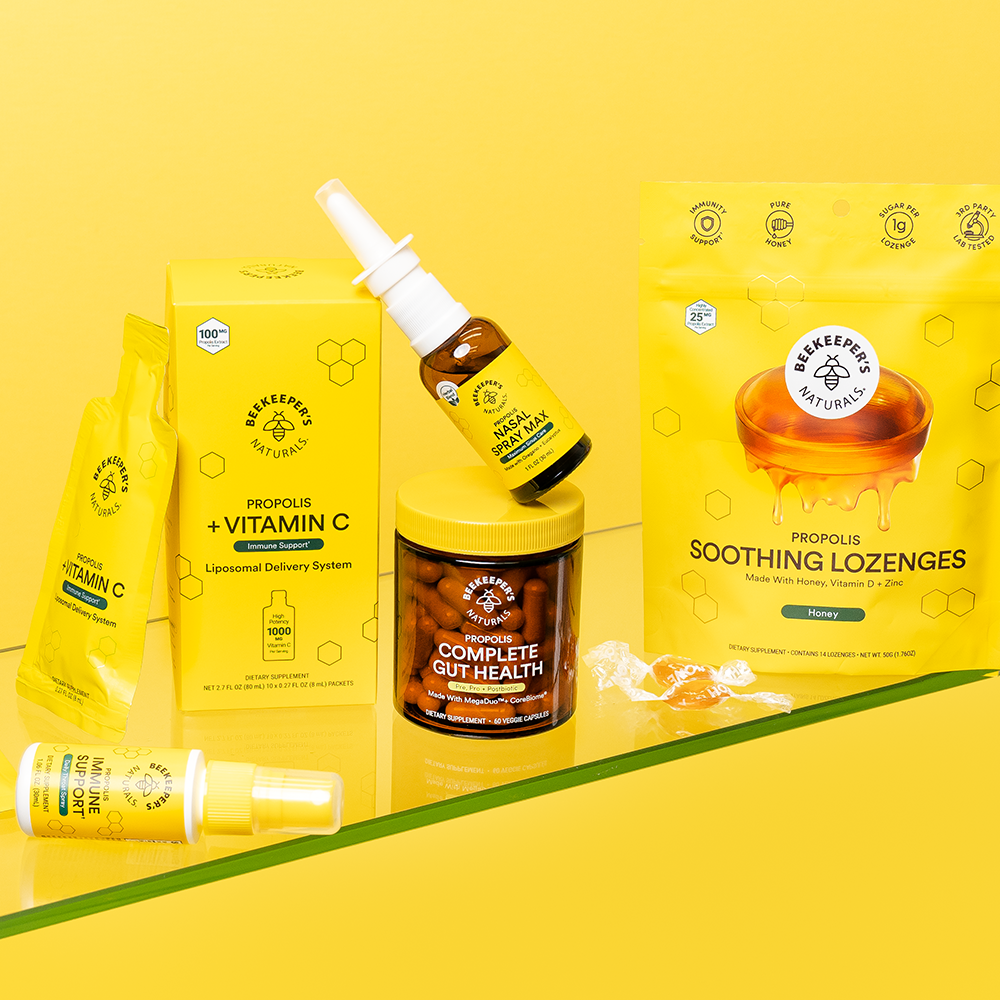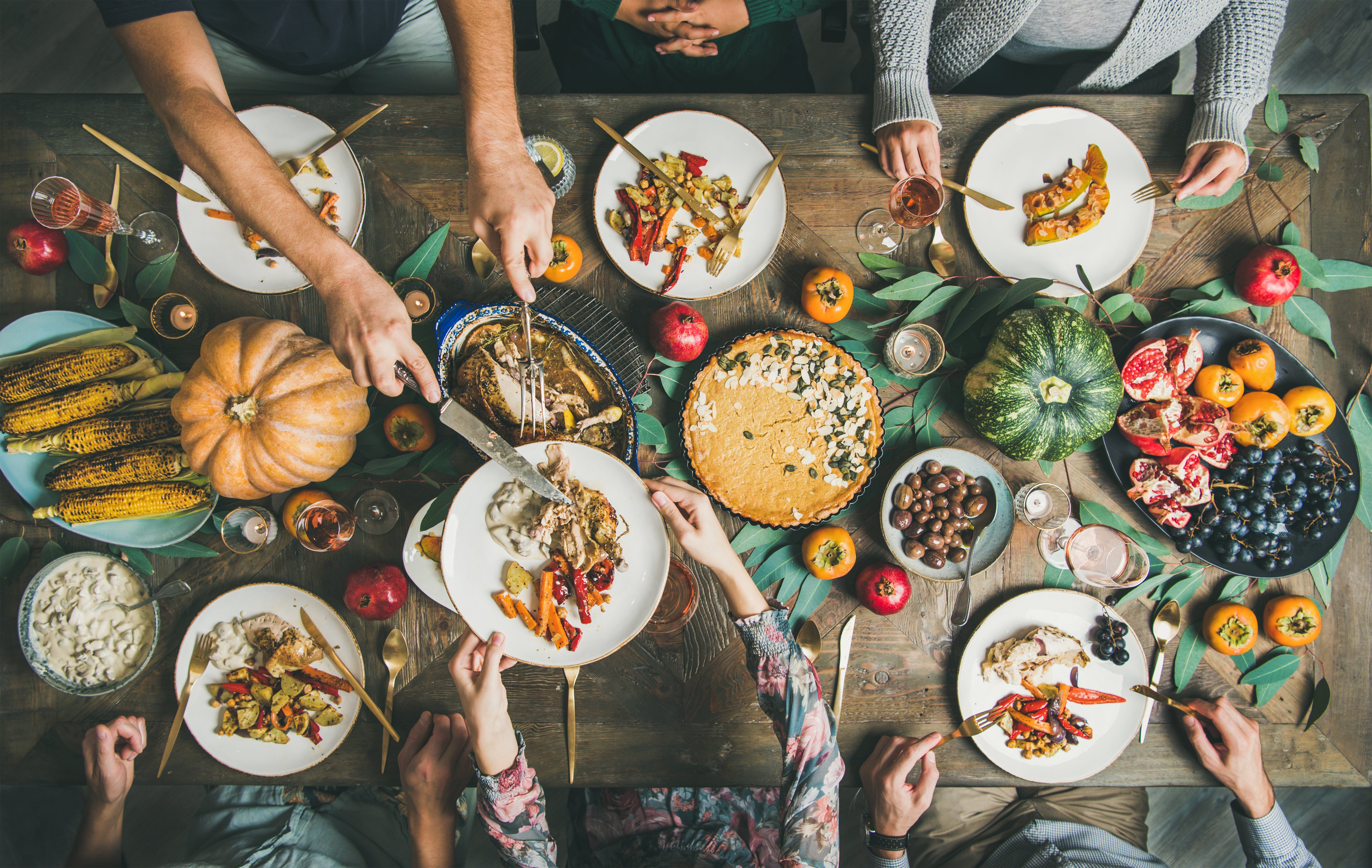Ever wonder how your body tackles digesting a big feast? (It's never too early to start that Thanksgiving wellness prep.) Well, your body actually has some very important little helpers—our gut bacteria.
We wouldn't be able to enjoy all the foods we do without our resident bacteria. Our immune systems wouldn't be as strong. We wouldn't absorb nearly as many nutrients from what we eat. Even our moods might destabilize. Our bacterial flora are as integral to health as our very own cells. In fact, only 10 percent of the cells in our bodies are actually human. The other 90 percent is comprised of the some 100 trillion organisms we've come to know as our microbiome.

Okay, so what is the microbiome?
We are actually complex super-organisms, much like a bee colony, with trillions of different microorganisms calling the human body home. In fact, if you were to weigh the entire microbiome, it might clock in at as much as 5 pounds—that’s a lot of tiny little critters!
And while the microbiome is usually associated with the gut, these little critters inhabit nearly every part of our body—skin, mouth, nose, eyes, our private parts—and the vast majority of them are absolutely integral to our health.
Wondering how much your microbiome runs the show? These symbiotic critters play a huge role in determining the health of our immune system, our weight, our moods, and even how well we digest our food. Having the proper balance of good bacteria in our gut (and beyond) is paramount to achieving good health.

Wait—so bacteria so actually good for us?
You bet. While some bacteria is harmful—we’re looking at you Streptococcus pyogenes—there are thousands and thousands of microbial species that actually work with our natural system to improve our health.
Some of the bacteria the average person houses includes Bifidobacterium, Lactobacillus, Bacteroides, Clostridium, Escherichia, Streptococcus, and Ruminococcus. But your unique biome fingerprint is entirely dependent on your diet and lifestyle. Stress, poor diet, antibiotic use, and too little outdoors time depletes your beneficial bacteria, leaving a vacancy for their nastier cousins to move in—that's when we get sick and unhealthy. But most of the time, when you're in balance, all these critters coexist happily, paying their way by providing crucial services to the human body.
In fact, your microbiota actually have a powerful influence over the nutritional value of the foods you eat. Without the help of microorganisms, humans don’t possess the necessary enzymes to break down many of the complex nutrients we consume. But the bacteria that line our guts do, and they break down complex nutrients for us so we can absorb all their goodness, making good bacteria crucial to the digestion process. They even produce B vitamins and vitamin K for us!
And yes, when your gut bacteria do go out of whack, your digestion and nutrient absorption suffers—even without much of a shift in your diet. That's where inflammatory conditions like leaky gut and IBS can come into play.

So what’s the secret to a happy, healthy microbiome?
1. Prioritize probiotics. While popping a quality supplement is a good start, it’s important to make probiotic-rich foods a standard part of your diet to ensure your healthiest inner ecosystem. And probiotics aren't just for your digestion. There is major a trend towards probiotic skincare to rebalance the colonies that live on our skin—which hopefully can help ward off inflammation like acne and restore microbial balance.
2. Don’t forget about prebiotics. Good bacteria thrive on certain foods, so it's kind of a no brainer to eat more of those. Some great prebiotics include tigernuts, flaxseeds, dandelion greens, garlic, oats, apples, raw cacao and, of course, raw honey. And it’s probably a good idea to limit the foods that bad bacteria feed on—namely, refined sugar.
3. Get outside more often. Get outside and roll in the dirt. Play with a dog. Hug a tree. It’s hugely beneficial to expose yourself to a diverse array of bacteria to ensure you have a strong and stable microbiome. The more good bacteria you encounter, the healthier you'll be.
So, next time you enjoy a big meal, thank your gut bacteria for doing their thing. It'd be pretty hard to stay healthy and nourished without them.





